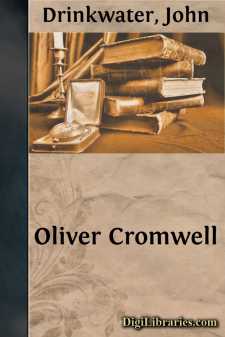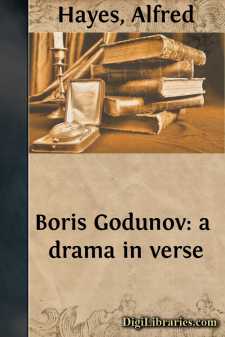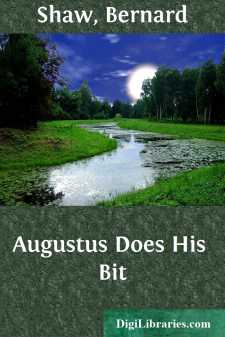Drama Books
Sort by:
COSTUMES. The simplicity of the costuming as well as of the stage setting makes the play an easy one for amateurs to produce. The dress of the four school girls should be as modern as possible. Their hair should be elaborately arranged. Hippolyta should wear the dress of an Amazon, armor if possible, or a short skirt, sandals laced high with crossed strings, waist to match the skirt, a crown, and a...
more...
by:
Edwin Bjorkman
This is one of the three plays which Strindberg placed at the head of his dramatic production during the middle ultra-naturalistic period, the other two being "The Father" and "Miss Julia." It is, in many ways, one of the strongest he ever produced. Its rarely excelled unity of construction, its tremendous dramatic tension, and its wonderful psychological analysis combine to make it a...
more...
PREFACE Believing plays to be solely for the stage, I have never before allowed any of mine to be printed until they had first faced from a stage the judgment of an audience, to see if they were entitled to be called plays at all. A successful production also has been sometimes a moral support to me when some critic has said, as for instance of "A Night at an Inn," that though it reads passably...
more...
by:
Rutherford Mayne
THE TURN OF THE ROAD. Mrs. Granahan.Is that the whole of them now Ellen?Ellen.Yes that's all now but one.She goes across to grandfather and lifts the plate.Have you finished granda?Grandfather.Yes dearie I have done.He pauses and fumbles for his pipe, &c.Is'nt that a fiddle I'm hearing?Ellen.Yes. Robbie's playing the fiddle in the low room. Mrs. Granahan.Arranging plates on...
more...
by:
John Drinkwater
SCENE ICromwell'shouse at Ely, about the year 1639. An early summer evening. The window of the room opens on to a smooth lawn, used for bowling, and a garden full of flowers.Oliver'swife,Elizabeth Cromwell, is sitting at the table, sewing. In a chair by the open windowMrs. Cromwell, his mother, is reading. She is eighty years of age.Mrs. Cromwell:Oliver troubles me, persuading everywhere....
more...
by:
Alfred Hayes
PALACE OF THE KREMLIN (FEBRUARY 20th, A.D. 1598) PRINCE SHUISKY and VOROTINSKY VOROTINSKY. To keep the city's peace, that is the taskEntrusted to us twain, but you forsoothHave little need to watch; Moscow is empty;The people to the Monastery have flockedAfter the patriarch. What thinkest thou?How will this trouble end? SHUISKY. How will it end?That is not hard to tell. A little moreThe multitude...
more...
by:
Bernard Shaw
AUGUSTUS DOES HIS BIT The Mayor's parlor in the Town Hall of Little Pifflington. Lord Augustus Highcastle, a distinguished member of the governing class, in the uniform of a colonel, and very well preserved at forty-five, is comfortably seated at a writing-table with his heels on it, reading The Morning Post. The door faces him, a little to his left, at the other side of the room. The window is...
more...
by:
Bernard Shaw
The forenoon of the first of April, 1911. General Mitchener is at his writing table in the War Office, opening letters. On his left is the fireplace, with a fire burning. On his right, against the opposite wall is a standing desk with an office stool. The door is in the wall behind him, half way between the table and the desk. The table is not quite in the middle of the room: it is nearer to the...
more...
by:
Edith Oland
BIOGRAPHICAL NOTE "I tell you, you must have chaos in you, if you would givebirth to a dancing star."—Nietzsche. In Stockholm, living almost as a recluse, August Strindberg is dreaming life away. The dancing stars, sprung from the chaos of his being, shine with an ever-increasing refulgence from the high-arched dome of dramatic literature, but he no longer adds to their number. The...
more...
"The crescendo of quarrel is most skilfully and drolly arranged;— scene on classic lines boldly challenging and, what is more, maintaining comparison with Sheridan." Mr. A. B. Walkley—The London Times. "This new play, by Mr. Henry Arthur Jones, at The Haymarket, is surely as good a comedy as he has ever written. I should say, in evaluating Mr. Jones, that his greatest asset is his...
more...











